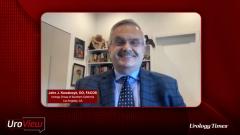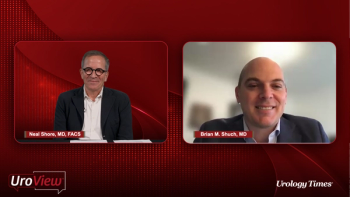
Use of Clinical Software Tools To Streamline Practice Workflows
An experienced urologist provides an overview of useful niches clinical software tools can fill and how they can serve to boost efficiency in the practice.
Episodes in this series

John J. Kowalczyk, DO, FACOS: Historically, when EMR [electronic medical record] services first came out, we were 1 of the first groups to do something electronically. The reason why is because 1 of our hospitals was trying to get all of its incentives. They had established a few organizations that looked like they were going to go in the right direction and get their credits as well. Due to the many changes in congress and the differing expectations of the hospital, we decided to choose an electronic system.
One of the most detailed EMRs that we had prior to going to ModMed was a system called Greenway Health. Greenway Health was very complex and very detailed. I think our management team loved it more than our clinical team. The most frustrating component for me, although our younger members in medicine are more adapt at typing, is that I am a 1-finger typist. I'm not interested in going for typing lessons. So, basically, I spent my weekends catching up on notes. It would take hours. These weekends off were not really weekends off. The notes were amazingly detailed. I think the concept of templates was just being developed at that time. Even so, the templates required fill-in-the-blank fields. There are quite a few fill-in-the-blank fields on said templates.
The newer systems out there, for example, the 1 we are using now, allows us to use an iPad. I'm an iPad person for the most part because it works with 1 finger, and you can also use your thumb every now and then. We've learned how to use our thumbs on the cell phone; the iPad has been somewhat easier for me to use from that standpoint. Secondly, voice recognition on the iPad is relatively superior to the old technology. It actually recognizes what I'm saying. Because of the repetitive language that I'm using, it's actually catching and recording a lot of the medical terminology that I would have had to go back and edit with the old voice recognition systems. From a historic standpoint, we have gone from my spending a minimum of 6, 8, or more hours on a weekend catching up on notes to now. If I have notes to catch up on, with this new system, it would take maybe an hour at most. Then I would spend maybe an hour at most catching up on another tedious component of medicine: the electronic prescriptions that are being sent to us nonstop. That would be my 2 hours of duty on weekends now.
Newsletter
Stay current with the latest urology news and practice-changing insights — sign up now for the essential updates every urologist needs.



